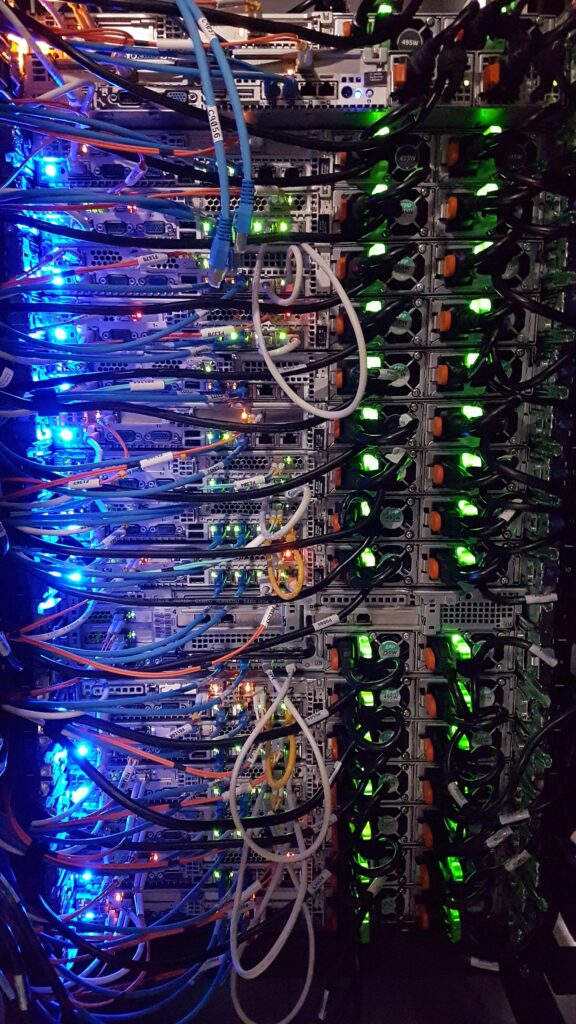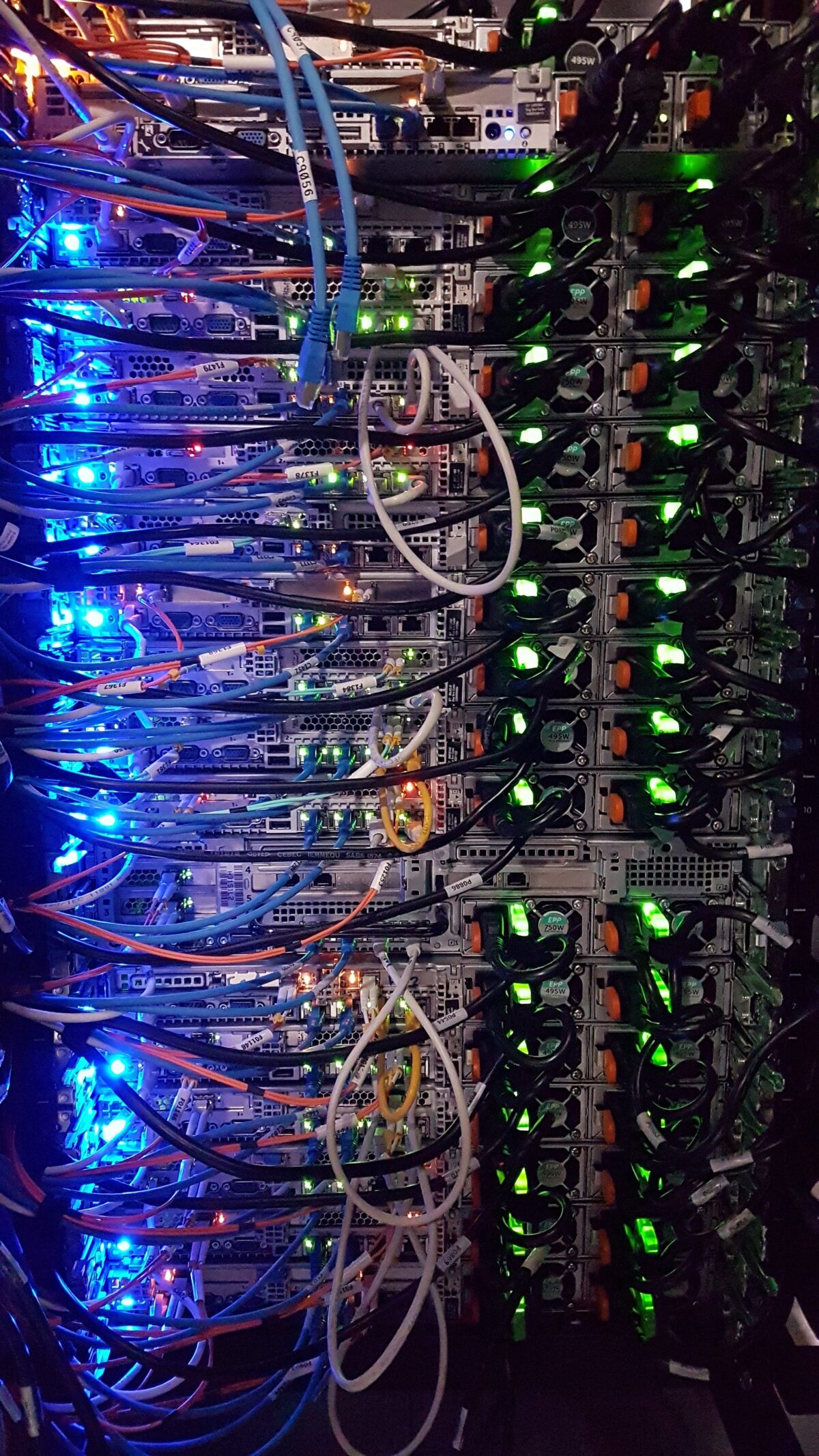Buying dedicated servers? This is a full-blown guide to setting up your dedicated (bare metal) server from the ground up.

Here, I tell you all the ins and outs, from picking the optimal server to making it bulletproof in terms of security and performance (while not paying through the nose for it).
As you read further, be sure that everything I wrote here follows the latest standards from the tech industry.
After all, this is how the world’s leading tech companies (that I have as clients) secure & run their servers. (I cannot tell you the exact names, but think of FAANG…)
You’ve got an end-to-end list that saves you a lot of money. (Comparable consultancy services would cost you tens of thousands of dollars.)
And there you have it, all done-for-you and served on a silver plate.
Here are all the parts (which will be updated as I post more content):
#2 Choosing The Best Dedicated Server Configuration
#3 Best Operating System (OS) for Servers
#4 Hosting Control Panel: Plesk Or cPanel?
Motivation behind
If this is your first time to read my words, I am a tech expert with 15+ years of experience in the industry.
(Working as a consultant at Silicon Valley-based tech startups.)
Next to this (as a side hustle), I have several blogs/websites/apps that I develop and run (it also generates a nice secondary income stream).
Now, all these private projects run on servers I rent from different providers.
And what about that?
Well, just now, I needed to replace one of my servers as it has become outdated (in terms of its hardware).
Then I got an idea…
Why not document the entire process and share what I do (as I am doing it)?
(Yes, fresh from the oven.)
So, let me tell you what the first step is…
GCP/AWS/Azure vs. bare metal
There is no cloud — it’s just someone else’s computer. (If you are an engineer, you probably already know this.)
At one point, I also considered replacing my old bare metal with a comparable cloud instance… (Yes, keeping up with the Joneses.)
Then I got a “cold shower” when I looked at the list prices of AWS/GCP.
But why?
I can only tell you that for a fraction of the AWS/GCP price, you can get x10 better bare metal servers.
It was a no-brainer for me. The price difference was just too high to adjust the choice.
So, there I was, shopping for a new dedicated server.
Note here: Cloud might be a good choice if you need tens of instances (and all that on-demand with the possibility to scale in/out quickly).
In all other cases, I think that this need is exaggerated (you really don’t need that many options).
Dedicated server provider selection
Since I already had to replace my old dedicated server, it was a good moment to consider a full-blown migration.
If you have to do a lift-and-shift migration anyway, it takes only a little effort to change the provider as well. (When you are already at it.)
So, I compared different providers, hoping to find the best deal.
Just to clarify, here is some more context.
Server4You has been hosting my servers since 2017. They are technically reliable, but the customer support could be better (faster).
And I can tell you, this was not a big deal, as it’s a self-managed server anyway… (You have to do stuff yourself.)
Really, it’s been a smooth ride with Server4You (except for a faulty disc that had to be replaced, but this is business as usual in the tech world).
The tipping point was more on the pricing side.
Already at first glance, I could see that other providers are offering more value for the money (for the same price, you can get a way better machine).
And there I was, shopping big time.
(To be 100% honest, Server4You wanted to give me a premium offer after they heard I am moving to a competitor but I didn’t take that.)
Dedicated server alternatives
I was already familiar with most of the big names in the dedicated server world.
Here is the list of providers I thought of from day 1:
- Server4You (my old provider)
- Hetzner
- Kinsta
Just in case, I wanted to make sure my knowledge about each is up to date and not biased by past experiences (memories).
So, I did my homework and went on researching reviews on Reddit, Quora, and Facebook about each provider.
Long story short, Kinsta is very reliable and user-friendly but charges arm and leg for their dedicated services.
So, I decided to go for Hetzner (before 2017, I was using them for dedicated hosting).
Hetzner offers uptime comparable to Kinsta at the prices that are way, way cheaper.
(They also greatly improved the portal where you order/manage services.)
And a bunch of shared-hosting companies actually use Hetzner behind the scenes.
To summarize, these are the main reasons why I chose Hetnzer:
- 15+ years in business
- Used by blue-chip companies
- Ultimate data center security measures
- Integrate with all the latest technologies (backup, monitoring, alerting, etc.)
- Cheap prices
- User-friendly portal and automated ordering process so you get your server very fast
- Decent customer service support (they walk an extra mile despite it being a self-managed service)
Buying dedicated servers: Auction vs. new servers
Now that I have narrowed down my choice, the moment to pick a dedicated server has come.
You basically have two options with Hetzner: buy a brand new server or buy a “refurbished” dedicated server that has some “mileage” on it (it was in service earlier).
New servers are fine (and the prices are fair), but when I looked at the so-called “auction servers,” I couldn’t believe it…
It turns out you can buy “refurbished” servers that are extremely powerful for a very cheap price.
These machines served some other customers in the past, but the service got canceled, and Hetzner now wants to rent those machines out again.
(It can also be that they got a newer hardware generation and want to offer the older one at an auction.)
Now, don’t make a mistake about it… It’s not an auction where the highest bid wins; it’s just that the prices change per hour…
At the current list price, you can buy any of the servers immediately (so you are not competing with other bidders directly and don’t wait for a thing).
How these auctions work is relatively simple…
Hetzner is changing the prices based on the demand and what they learned from the previous purchases (at what price people buy a certain configuration, etc.).
If you offer the asked price, you get the server just for you right away (no one else will have a chance to make a higher offer).
Click here to check out the servers at the auction.
But this is still old hardware, right?
Well, it’s not a brand new. However, before putting the server at the auction, Hetzner ensures that the machines have “ticket all the boxes” in their internal tests. So rest assured the hardware is fully functional and completely healthy.
(Failures can happen — a faulty disc, for instance — but new servers are also not exempt from this issue.)
(See here and here Reddit discussions that can help you address some of the remaining worries.)
Long story short, I decided to go for an auction server.
…
Stay tuned for the next part, where I will tell you how to choose the right configuration (and other important considerations).





![AWS Learning Path For Beginners: How to Master AWS in lunch break [FREE] F8AA6992-1D32-4B03-9624-546C2566E8C3](https://igorjovanovic.com/wp-content/uploads/2022/10/F8AA6992-1D32-4B03-9624-546C2566E8C3.png)

![7 layers of networking explained to a plumber [True Beginner's Guide] 99E6B57F-559C-45EE-B3C7-775C198A6689](https://igorjovanovic.com/wp-content/uploads/2022/09/99E6B57F-559C-45EE-B3C7-775C198A6689.jpeg)